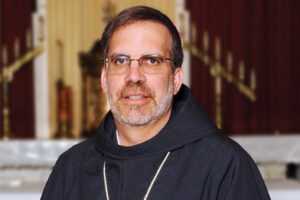A Guest Column for Labor Day from CLN Spiritual Moderator Fr. Sinclair Oubre, JCL
For a number of years, cries have arisen for greater equity. As we celebrate Labor Day, one of these cries of inequity surrounds pay.
“Are men and women, who do the same work, and work the same number of hours receiving the same pay?”
There are many anecdotal stories of women moving into work positions, and later finding out that their male predecessor was paid significantly more than they were. There are also stories where women supervisors have learned that their male underlings were receiving larger compensations.
Now, the general practice is to complain to the supervisor about this injustice, and if that does not get satisfaction, either litigate or file a complaint with a governmental agency like the Equal Opportunity Employment Commission.
An individual employee’s action may bring equity for her, but unless her case evolves to a class action, her sisters in the same company, who may be in the same situation will not benefit from her victory.
I am a member of the Seafarers International Union, and if one is an Able Bodied Seafarer, whether one is a man or woman, an African American, Hispanic, Arab, or Caucasian, we all will make the same wages for the same work.
What makes the executives at US-flagged shipping companies different from the executives that I described above? Are they more moral? Are they more altruistic or magnanimous? Not really. The difference is the collective bargaining agreement between the company and the mariners’ union that sets wages, work hours, overtime, and benefits for all workers covered under that classification.
With a collective bargaining agreement, the supervisor cannot play employees off by telling one that she or he makes more than another employee, and that is why they have to work harder, or longer, or be held to a higher standard.
Since compensation packages are considered confidential private information, the employee really does not know if he or she does make more, and whether it is 10¢ or $10.
As a Catholic priest, we have such a wonderful treasure, Catholic Social Teachings. These teachings are 129 years old, and reflect on the moral values in the work world. Part of the CST covers collective bargaining.
In 1891, Pope Leo XIII first raised the issue of a just employment bargaining between the worker and the employer in the encyclical Rerum Novarum:
“45. Let the working man and the employer make free agreements, and in particular let them agree freely as to the wages; nevertheless, there underlies a dictate of natural justice more imperious and ancient than any bargain between man and man, namely, that wages ought not to be insufficient to support a frugal and well-behaved wage-earner. If through necessity or fear of a worse evil the workman accept harder conditions because an employer or contractor will afford him no better, he is made the victim of force and injustice.”
In 2005, Pope Benedict continued the CST tradition that had been promoted by his predecessors when he expressed concern over attacks on collective bargaining in his encyclical Caritas in Varitate:
“25. Through the combination of social and economic change, trade union organizations experience greater difficulty in carrying out their task of representing the interests of workers, partly because Governments, for reasons of economic utility, often limit the freedom or the negotiating capacity of labour unions. Hence traditional networks of solidarity have more and more obstacles to overcome.”
In 1986, the United States Catholic Bishops picked up this theme of collective bargaining and applied it to their own religious institutions in their pastoral letter Economic Justice for all:
“All church institutions must also fully recognize the rights of employees to organize and bargain collectively with the institution through whatever association or organization they freely choose. In the light of new creative models of collaboration between labor and management described earlier in this letter, we challenge our church institutions to adopt new fruitful modes of cooperation.”
On this Labor Day, I wish to thank all our unions for providing collective bargaining agreements for their members. The agreements guarantee equity in pay and benefits. If we had more collective bargaining agreements, we would have greater economic equity in the workplace.

